Invited Speakers
Invited Plenary Speakers
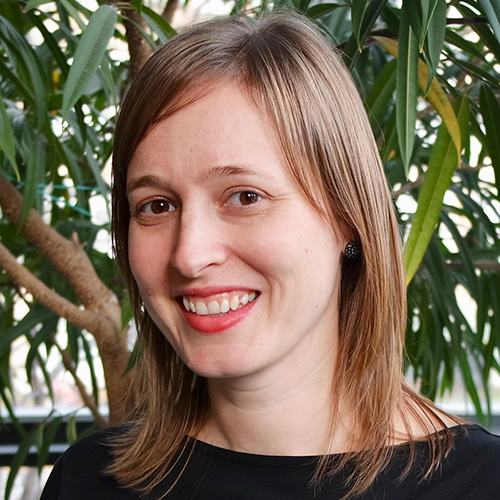
Krista Byers-Heinlein
Concordia University
Dr. Krista Byers-Heinlein is a Full Professor in the Department of Psychology at Concordia University, where she holds the Concordia University Research Chair in Bilingualism and Open Science and directs the Concordia Infant Research Lab. Her research focuses on infants and children who grow up in bilingual environments. She has made notable discoveries about how very young bilinguals discriminate and differentiate their two languages, how children are able to learn words in two languages to build their vocabularies, and how parents interact with their bilingual children to support their development. She is also active in efforts to improve psychological science, working to improve methods, increase transparency, build large-scale collaborations in the field, and promote equity and inclusion for under-represented groups. Dr. Byers-Heinlein is a founding member of the governing board of the ManyBabies Consortium, which spans 200+ labs across 40+ countries, which has fundamentally changed how developmental research is conducted globally.
Dr. Byers-Heinlein has authored more than 80 peer-reviewed articles in journals such as Psychological Science, Child Development, Developmental Science, and the Proceedings of the National Academy of Sciences and is co-author of the book, The listening bilingual: Speech perception, comprehension, and bilingualism. Her research has been supported by over 3.7 million dollars CAD in direct costs from granting agencies including from the Social Sciences and Humanities Research Council of Canada, Natural Sciences and Engineering Research Council of Canada, les Fonds de recherche de Quebec, and National Institutes of Health. Her research is often featured in print and broadcast media, including Global TV, CBC Radio, Psychology Today, PBS, the Globe and Mail, and the New York Times. Her work has been recognized by numerous awards, including most recently the 2025 Quebec “Rising Star” prize for leadership and scientific excellence.
Abstract
What Bilingual Babies Reveal About How All Children Learn
Bilingual children show remarkable variation—some become fluent in multiple languages while others struggle, despite seemingly similar circumstances. This puzzle illuminates a fundamental challenge in understanding how all children learn. Traditional approaches focus on isolated factors that correlate with developmental outcomes, ranging from age and exposure to family background and culture. Yet these correlations mask the underlying mechanisms that actually drive development. Here, I argue that systems thinking that considers dynamic interactions across system levels is crucial for understanding underlying mechanisms of learning and development. Drawing from experimental, parent-report, and sociolinguistic research on language acquisition in bilingual infants, I show how development emerges from the interplay between maturational factors and experience, and how developmental outcomes depend on alignment across individual, family, and societal levels. What bilingual babies teach us extends far beyond language: successful development in any domain requires understanding the complex web of interacting forces that shape children’s minds.
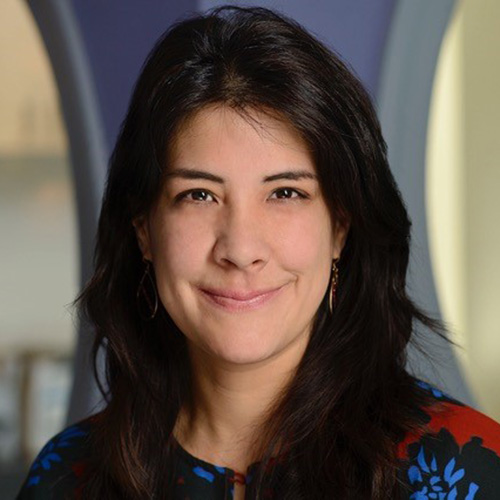
Lisa Feigenson
Johns Hopkins University
Lisa Feigenson is Professor of Psychological and Brain Sciences at Johns Hopkins University. She received her BA from Cornell University (with Elizabeth Spelke) and her PhD from New York University (with Susan Carey). Her work seeks to understand foundational aspects of basic cognition starting in infancy, and how these change with experience. She is a recipient of the Troland Award from the National Academy of Sciences, the Boyd McCandless Early Career Award from APA, and a James S. McDonnell Foundation Scholar Award. She feels fortunate to have been mentored by outstanding and inspiring scientists, and to have been surrounded by brilliant students and colleagues throughout her career.
Abstract
The cradle of curiosity
Curiosity underpins the greatest of human achievements, from exploring the reaches of our solar system to discovering the structure of our own minds. Where does this drive come from? Here I suggest that far from being reliant on language and sophisticated metacognitive skills, curiosity is present from our earliest days. In support of this claim, I discuss work showing that preverbal infants not only experience curiosity but harness it: when babies’ predictions fail to accord with their observations, they look longer, learn more, and produce exploratory behaviors. Critically, their exploration is guided by a desire to explain —long before they have the words to describe what they see, babies seek to understand why things happen as they do. In this sense, the curiosity that emerges in infancy lays the foundation for a lifetime of discovery.
Invited Symposia
Growing up multilingual: Contexts and mechanisms of language learning
Chair: Andrei Cimpian, New York University
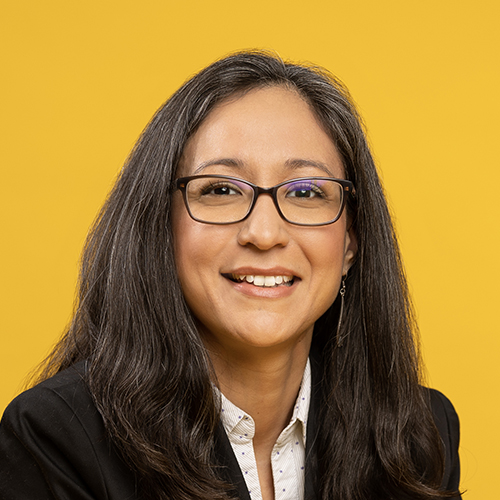
Viridiana Benitez
Arizona State University
Viridiana Benitez is an Assistant Professor at Arizona State University, where she directs the Learning & Development Lab and co-founded the Early Childhood Cognition Research Group. Her research examines how cognition, context, and experience shape language learning across development. To achieve this, Benitez works with infants, children, and adults from monolingual and multilingual backgrounds. With this research, Benitez aims to identify the factors that promote language learning in children growing up across diverse learning environments. As a bilingual first generation student from an immigrant family, Benitez is also dedicated to expanding access to psychological science for students, families, and communities.
Towards a developmental systems framework for understanding multilingual experience
It is estimated that the majority of children across the globe are exposed to multiple languages and have the potential for multilingual development. And yet, the idea that monolingualism is the norm and multilingualism is the exception remains pervasive in the field of language and cognitive development. In this talk, I will present research on word learning and book sharing in bilingual contexts, arguing that traditional perspectives in these domains do not fully account for the learning mechanisms and opportunities available in multilingual environments. I suggest that a developmental systems framework is necessary for understanding the multilingual experience and highlight how this framework can help reconstruct research for the benefit of multilingual learners.
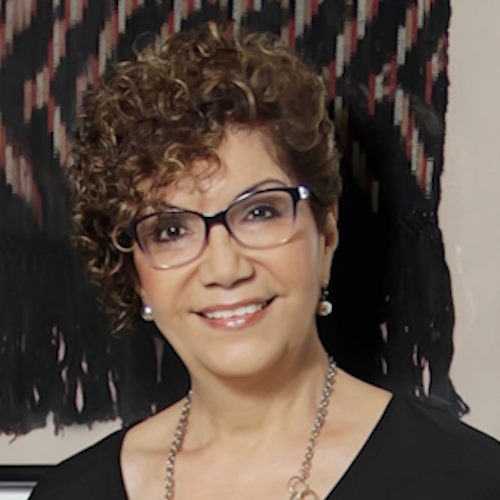
Dina Castro
Boston University
Dr. Dina Castro is Bahamdan Professor in Early Childhood Well-Being and Director of the Institute for Early Childhood Well-Being at Boston University. Dr. Castro’s research examines bilingual children’s language, literacy, and socio-emotional development and the quality of early education for bilingual children in immigrant and indigenous communities in the United States and Latin America. Her expertise includes developing instruments to document young children’s bilingualism, assess quality of early education for bilingual children and the acquisition of English as a second language. She is also involved in global research on the impact of migration on children’s socioemotional well-being, intercultural bilingual education and afro-diasporic early education.
Shifting paradigms in bilingual development research: The role of sociopolitical context and language ideologies
Research on bilingual development has frequently treated language acquisition as a decontextualized cognitive process, often overlooking the external forces that shape a learner’s environment. It has focused heavily on cognitive architectures and linguistic proficiency, treating the bilingual experience as a monolithic phenomenon. This presentation argues for a necessary paradigm shift, moving beyond considering only psycholinguistic frameworks to incorporate the critical roles of sociopolitical contexts and language ideologies. We examine how systemic factors—such as educational policies, immigration discourse, and the racialization of language—directly influence linguistic trajectories and identity formation in bilingual children and discuss how language ideologies can either foster or hinder heritage language maintenance. The session highlights emerging research that utilizes socio-critical lenses to understand the bilingual experience as a situated practice. Ultimately, this presentation calls for a more holistic, ecologically valid approach to research that honors the complex interplay between the mind and the state.
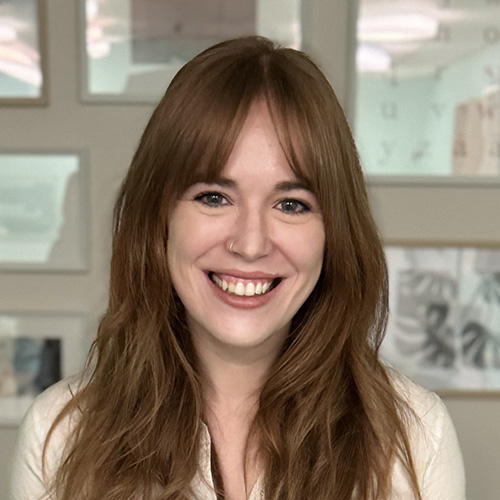
Drew Weatherhead
Dalhousie University
Dr. Drew Weatherhead is an Associate Professor in the Department of Psychology & Neuroscience at Dalhousie University. Her research investigates the mechanisms of early language acquisition, with a particular focus on sociolinguistic development in infancy and early childhood. Using methods such as eye-tracking and functional near-infrared spectroscopy (fNIRS), she examines how children process accented speech and how social factors—such as speaker race—influence language perception and learning. Her recent work explores how bilingual experience and social context shape early speech processing and lexical development.
Speaker race shapes bilingual infants’ expectations about speakers’ language knowledge
Infants learn language in a vast hypothesis space: many signals are available, but not all cues are equally informative. Early in development, infants begin to prioritize information relevant to their native language(s), supporting efficient processing and rapid acquisition. At the same time, flexibility is critical in contexts involving variability, such as accented speech. Prior work suggests speaker identity—including race—can shape the mechanisms infants recruit during language learning. Here, we ask a more basic question: what assumptions do infants make about how many language systems a given speaker has access to? Previous work suggests monolingual infants may assume speakers are monolingual by default, whereas bilingual infants do not.
We introduced speaker race as a contextual cue and examined bilingual infants’ expectations about speakers’ language knowledge. After familiarization with a novel English-speaking speaker, bilingual infants looked longer when a racially familiar speaker spoke English and then produced an unfamiliar second language. However, they showed a different pattern when the speaker was from an unfamiliar race, suggesting that bilingual infants’ expectations about multilingualism are sensitive to social-group membership and familiarity.
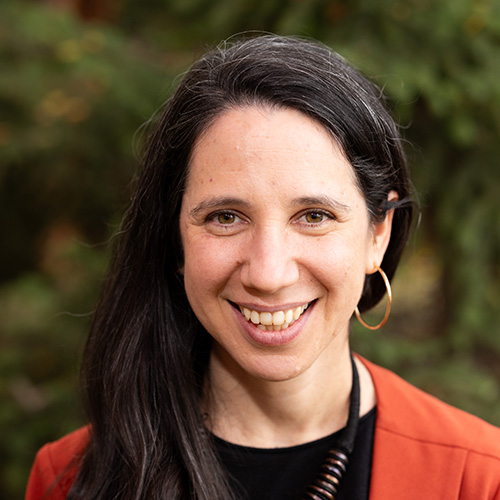
Adriana Weisleder
Northwestern University
Adriana Weisleder is an assistant professor in Communication Sciences and Disorders at Northwestern University. Her research investigates early language development in young children from a range of sociocultural backgrounds, with a focus on multilingual learners. She conducts observational and experimental work to investigate both the learning mechanisms and contexts that support language development. An important goal of this work is to contribute to building a more robust evidence base for understanding variability in language development across diverse environments. Her work has been funded by the National Institutes of Health, Academic Pediatric Association, and Russell Sage Foundation, among others.
The social contexts of bilingual language learning
How does bilingual experience shape language development? Much research shows that bilingual children’s exposure to each language relates to growth in that language. However, less is known about how bilingual children experience each language across social contexts, and whether that matters for language development. Drawing on longitudinal studies with bilingual toddlers, as well as quantitative and qualitative research with caregivers, I will present evidence that variation in the social contexts of bilingual exposure explain variability in children’s language learning. Paying greater attention to the social dimensions of bilingual learning contexts will help us understand variability in bilingual children’s development as well as the mechanisms underlying language learning more generally.
Children’s scientific reasoning
Chair: Kristin Shutts, University of Wisconsin-Madison
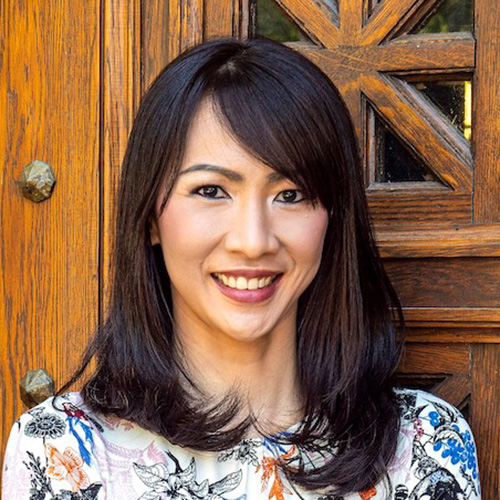
Florencia Anggoro
College of the Holy Cross
Florencia Anggoro is a Professor of Psychology at the College of the Holy Cross. She completed her Ph.D. in cognitive psychology (with a specialization in cognitive science) at Northwestern University, followed by a postdoctoral fellowship at the University of Chicago and University of Illinois at Chicago. Her research focuses on conceptual development, examining the roles of language, culture, and formal and informal learning experiences in shaping children’s and adults’ concepts. Her recent work has focused on designing and testing cognitive supports for children’s science learning, and the development of children’s beliefs across cultures.
Supporting Relational Thinking in Science Learning
To understand the scientific explanations of many natural world phenomena, children must engage in relational thinking—mapping the spatial, temporal, and causal relations between observations and their underlying causes. This is a significant challenge, especially for young children with little prior science knowledge. In this talk, I will discuss our approach to supporting children’s relational thinking within the context of an interactive museum exhibit and multi-player card games. By creating opportunities for comparison in these activities, we target cognitive challenges unique to different science domains: integration of perspectives (space science) and essentialist thinking (life science).
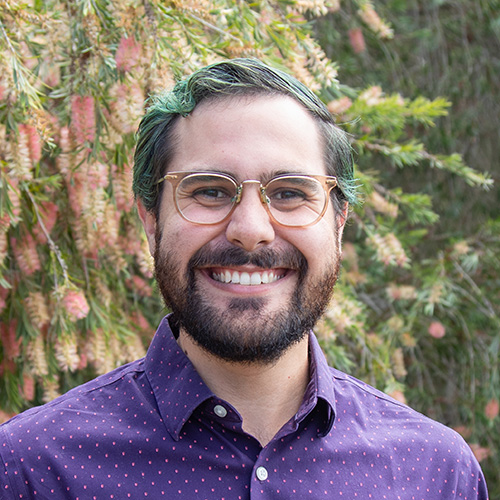
David Menendez
University of California, Santa Cruz
David is an assistant professor of Psychology at the University of California-Santa Cruz. His research examines how people learn concepts in formal and informal settings. He has explored how children learn science concepts through conversations with parents, when and why people change the strategies they use to solve mathematics problems, and how visual representations influence learning and generalization. He is also interested in the role of culture and socialization practices on development, including how participating in cultural rituals shapes children’s conceptual development, and how different communities within the United States think about illness.
Children’s understanding of and learning about COVID-19
The COVID-19 pandemic impacted the daily lives of people in the United States and around the globe. Although previous work had examined children’s understanding of illness, the pandemic sparked new work on how children think and learn about illness and viruses. I will present work on how 4- to 12-year-old children across different communities (particularly Black and Latinx communities and white rural conservative communities) in the United States think about illness and viruses. This work shows great commonalities across communities, with children grasping the observable aspects of viral transmission, but having difficulties with internal processes. I will then present how educational materials (e.g., books or videos) can help children learn about these processes.
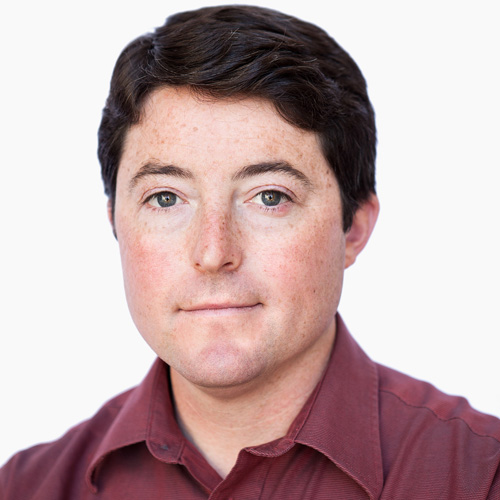
Andrew Shtulman
Occidental College
Andrew Shtulman is a Professor of Psychology at Occidental College where he directs the Thinking Lab. Dr. Shtulman studies conceptual development, focusing on the development of intuition, imagination, and reflection. He earned a BA in Psychology from Princeton and a PhD in Psychology from Harvard and is the author of Scienceblind (Basic, 2017) and Learning to Imagine (Harvard, 2023).
Cognitive Reflection Facilitates Children’s Science Learning and Scientific Reasoning
What do cows drink? The correct answer is water, but you may have been tempted to say milk. The disposition to override an intuitive response (milk) with an analytic response (water) is known as cognitive reflection. I will present evidence that cognitive reflection is critical to the development of scientific cognition, both when learning counterintuitive scientific ideas and when reasoning about counterintuitive data. The ability to identify and override erroneous intuitions may be a prerequisite for acquiring scientific knowledge even at the earliest stages of science education.
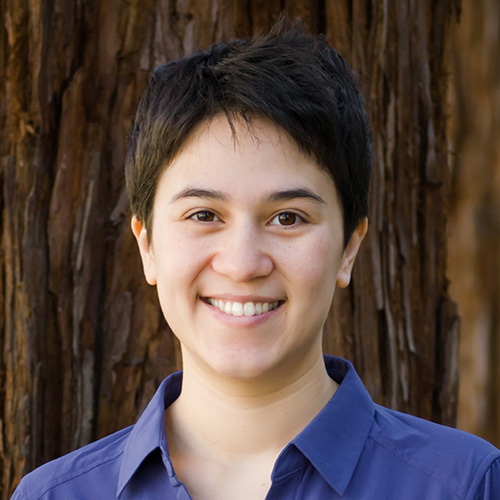
Tal Waltzer
University at Albany (State University of New York) & University of California, San Diego
Dr. Tal Waltzer is an assistant professor at the University at Albany (State University of New York). Tal received a PhD in developmental psychology from UC Santa Cruz in 2022 (with Dr. Audun Dahl) and then worked as a postdoctoral fellow at UC San Diego until 2025 (with Dr. Gail Heyman, NSF SPRF-FR# 2104610). Tal’s research examines social experiences in youths’ everyday lives and how they relate to moral development and decision-making in educational contexts.
Web: https://www.twaltzer.com/
Young people as climate learners and climate actors
As the climate crisis intensifies, affecting today’s youth and future generations, developmental science has an unprecedented opportunity and responsibility to address questions at the intersection of cognitive development and climate change. This talk will highlight a few recent studies on how young people understand the climate crisis and how they can take action to address it. We identify key gaps, including misconceptions and an overwhelming focus on individual behaviors (e.g., recycling) rather than systemic or collective action (e.g., social mobilization). Notably, our findings also point to important sources of promise, including high levels of concern and a sense of self-efficacy. We explore the effects of interventions and offer examples of how youth can make lasting changes in their own communities. The talk will conclude with implications for developmental science and promising directions for future research on supporting youth climate learning and engagement.
Early Career Symposium
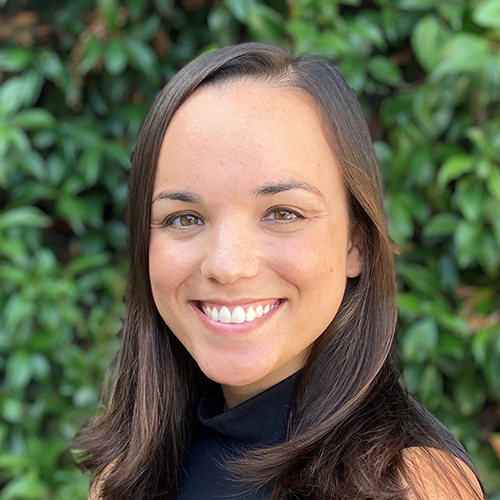
Jamie Amemiya
Occidental College
Dr. Jamie Amemiya is an Assistant Professor of Psychology at Occidental College. She researches how children and adults perceive, explain, and respond to social differences from a social-cognitive development perspective. One line of current work focuses on the mechanisms underlying structural reasoning about social group inequalities, as well as the downstream consequences of this causal framework on motivation and decision-making. In another line of research, she studies how children make sense of disagreement and what strategies help them integrate multiple perspectives.
Cause, effect, and inequality
Children grow up in a world marked by social group inequalities. In this talk, I will first present evidence that children are highly attuned to inequality, even in societies with more complex social hierarchies. I will then discuss how children explain the causes of social inequality and why promoting a more accurate, structural (vs. intrinsic) causal understanding of inequality is challenging. Finally, I will conclude by discussing implications for educational intervention, including opportunities within science education curricula.
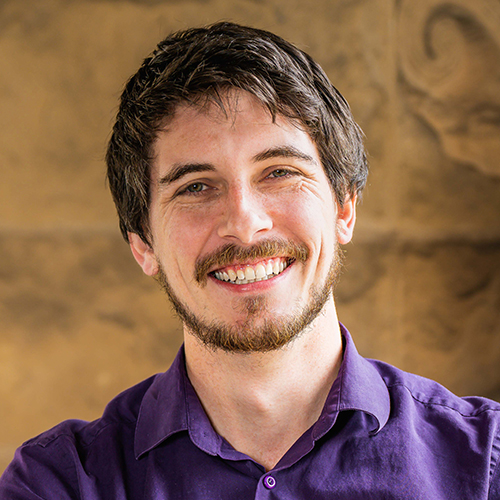
Cameron Ellis
Stanford University
Dr. Cameron Ellis is an Assistant Professor in the Department of Psychology at Stanford University. He leads the Scaffolding of Cognition Team, which focuses on the question: What is it like to be an infant? His team uses methods from neuroscience and cognitive science to assess the basic building blocks of the developing mind and answer this question. They are particularly interested in questions about how infants perceive, attend, learn, and remember. One prominent approach they use is fMRI with awake behaving infants. This provides unprecedented ways to access the cognitive mechanisms underlying the infant mind.
Dense longitudinal measurements indicate continuity in development during an infant’s first year of life
The first year of life is marked by rapid cognitive changes. Whether these changes are continuous or discontinuous (e.g., stage-like) remains a central question in developmental psychology. While whole-body growth seems continuous during infancy, frequent sampling (e.g., every 2 weeks) reveals discontinuous ‘growth spurts’. Therefore, characterizing infant cognitive development requires dense, longitudinal data. We collected dense brain and behavioral measurements from a single infant between 2 and 12 months of age. The measurements include MRI-based volumetry (sampled every 2 weeks), awake fMRI data from movie-watching and image tasks (sampled every 2 weeks), and a behavioral task to assess language comprehension (sampled every week). With this uniquely dense and extensive dataset—averaging 59.7 minutes of fMRI task data per month and 492.2 trials each month—we could precisely measure changes in brain and behavior. Preliminary analyses showed strong evidence of continuity: for example, a logarithmic model fitting age and whole-brain volume explains over 95% of the variance, providing no indication of growth spurts at this sampling cadence. These results are consistent with a continuous trajectory of cognitive development and provide precise estimates of developmental change at the individual participant level.
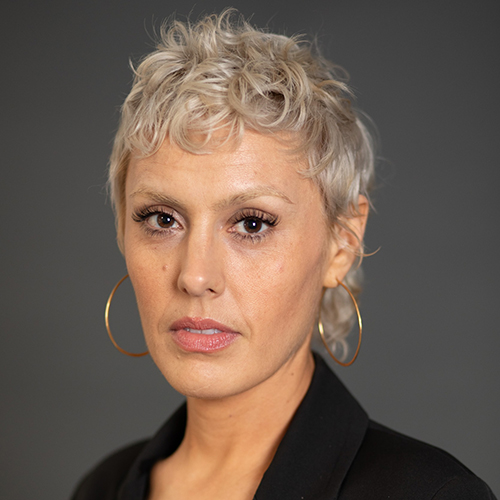
Ruthe Foushee
The New School
Ruthe is an assistant professor of Psychology at the New School for Social Research. Research in their lab uses a range of observational and experimental methods to study language development and linguistic and nonlinguistic communication, in contexts ranging from rural indigenous to industrialized, multilingual to monolingual, and speaking to signing. Before moving to the most linguistically diverse city in the world, Ruthe was a postdoc at the University of Chicago, a PhD student (in Developmental Psychology) at the University of California, Berkeley, and an undergraduate (in Linguistics) at Harvard.
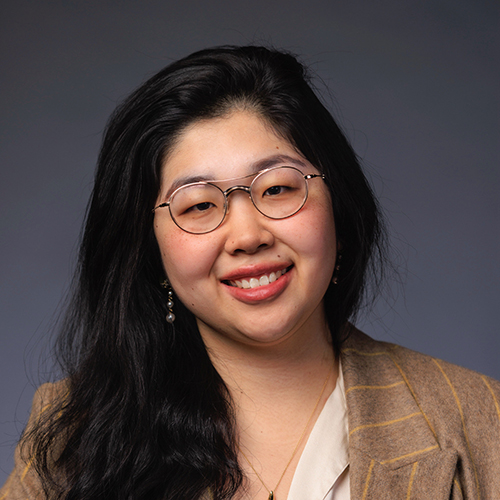
Pearl Han Li
University of Wisconsin - Madison
Pearl Han Li is an Assistant Professor of Psychology at the University of Wisconsin–Madison. Her research explores how children balance independent reasoning with reliance on others’ testimony. Li investigates how testimony influences children’s moral judgments, the role of interpersonal trust and collaboration in social learning, and the situational and cultural mechanisms that make children either too resistant or too credulous toward adult testimony. Her current work focuses on belief revision and epistemic and moral virtues in learning, including intellectual humility. Through experimental and cross-cultural approaches, Li’s research contributes to understanding how children become more compassionate and open-minded learners.
What makes a good believer? Children’s early understanding of responsible belief revision
We live in uncertain times. Some moments demand that we stand firm in our beliefs, even when facing social pressure. Other times, we might need to pause and ask ourselves: Could I be wrong? In this talk, I argue that children are intuitive epistemologists who grasp principles of responsible belief revision early in development.
I present evidence that by age five, children understand that while beliefs change is possible, strongly held beliefs are more difficult to change and less likely to shift in response to counterevidence. Children also distinguish between epistemic and coercive influence, recognizing that threats of punishment by an authority cannot produce genuine belief change the way evidence can. Finally, I show that children’s responsibility judgments are sensitive to informational constraints: they hold believers less accountable for inaccurate beliefs formed in impoverished information environments. Together, these findings suggest that children develop an early understanding of what it means to be a “good believer”: someone who is responsive to evidence, resistant to social pressure, and deserving forgiveness when lacking epistemic access. These early capacities have implications for understanding how children navigate disagreement and cultivate epistemic virtues in an age of misinformation.
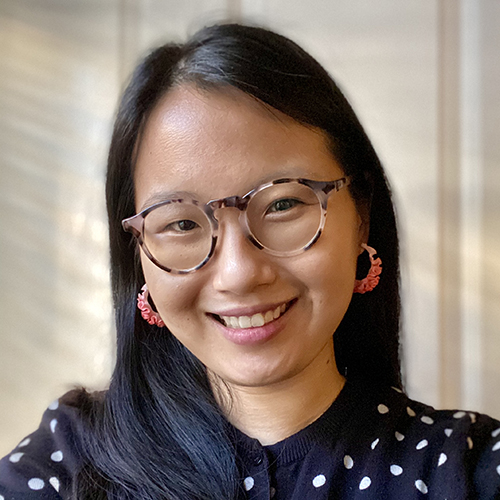
Shari Liu
Johns Hopkins University
Dr. Shari Liu studies the developmental, neural, and computational origins of social cognition, focusing on our capacity to understand other people as mental beings, physical bodies, and living systems. She also has strong interests in open (transparent, robust, welcoming, inclusive) science. She is an Assistant Professor at Johns Hopkins, where she heads the Look, Infer, and Understand (LIU) lab.
Understanding other people as physical actors, mental beings, and living things
Over human development, we construct intuitive theories of physics, psychology, and biology. My lab investigates the interrelations among these systems of knowledge, specifically focusing on our understanding of other people, who are simultaneously physical actors, mental beings, and living organisms. This talk will consist of a short tour of our recent work on this topic, and end by discussing the implications of this work for broader questions about mental architecture.

Alexis Smith-Flores
Lehigh University
Alexis Smith-Flores is an Assistant Professor of Psychology at Lehigh University. Her research investigates how young children reason about other people—particularly how they use emotions and relationships to make sense of the social world. She co-developed a theory of joint reasoning that explains how emotions and affiliative inferences are deeply intertwined through a shared foundation: concern for others’ welfare. Her work combines looking-time and behavioral methods to examine how infants and children integrate social information, and, more recently, how variation in early information-seeking and surprise may be related across core domains of cognition and shape later learning.
Learning across domains: Emotion, surprise, and early cognition
My research program examines how infants and children learn about the world across social and physical domains. Across studies, I investigate how young children leverage emotions, relationships, and surprise to make inferences and guide information seeking. This talk will highlight recent work from my lab and discuss implications for theories of early learning, curiosity, and developmental variability.